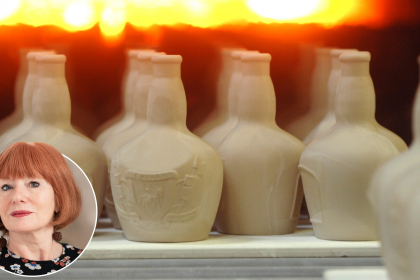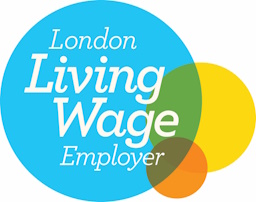
It was sad news to hear last weekend that Wade Ceramics has gone into administration.
In existence since 1867, Wade moved to its state-of-the-art factory on Festival Park in 2011.
As a Chamber we have incredibly strong ties with Wade as their MD, Paul Farmer OBE was our President from 2016 to 2019 followed by a three-year stint as Honorary Treasurer.
Not only have we lost another iconic local pottery company, but the decision will sadly result in the loss of around 140 jobs just three weeks before Christmas.
The decision is due to the challenges facing customers and the current economic challenges, including rising energy and supply costs.
Ceramics firms have been up against internationally uncompetitive energy and compliance costs for some time and the terrible and protracted war in Ukraine has led to unsustainably high gas prices. This puts even more pressure on firms unable to easily move away from reliance on gas to fuel the kilns.
Our ceramics businesses sit at the very heart of UK manufacturing. Without the brick, tile, and clay pipe manufacturers there would be no housebuilding. There is no glass or steel industry without the refractories and there is no heat from waste without advanced ceramics.
Energy costs are the number one business concern and must be a top priority for the Government.
A British Chambers of Commerce (BCC) survey in October found almost half of SMEs say they will find it difficult to pay their energy bills once the Government’s Energy Bill Relief Scheme ends on 31st March 2023 and some saying that they will not be able to pay their bills at all after 31st March.
While current Government support is welcome, there is a cliff-edge looming, and firms will struggle to see beyond it. They need certainty on what will happen in April so they can plan with increased confidence in a market where energy prices are certain to remain volatile.
There are other levers that Government can pull to relieve cost pressures, such as a reform of business rates to compensate firms that see energy support reduced or phased out.
With a lack of competitiveness in the business energy market firms are struggling to get quotes from different providers, and they are not guaranteed access to fixed-rate contracts.
Ofgem should be given more power to strengthen regulation of the energy market for businesses, ensuring suppliers offer fixed-rate contracts to business customers, and that competitiveness is increased.
One thing for certain is that the Chambers will remain dogged in the fight to protect all Staffordshire businesses and we will not let up on the pressure we exert on those in power from our own MPs to the Prime Minister. And we will continue to fight for renewable sources of power to be available – from district heat networks, heat to power plants, solar arrays and wind power. We know that businesses want to invest in these too and need help from planning and the National Grid upgrade to make it happen.
Staffordshire businesses have proved a spirit of togetherness through the pandemic and the current financial turbulence. There are so many people out there who offer their time and expertise for the good of us all and the Chambers is the place where they all come together, be that through our sector forums, area boards, events, seminars or through direct contact with our team.
As always, I would urge anyone with a question or a concern to get in touch via the channels below. Your voice is important to our continued representations to those in government who have the power to act for the good of business.
If you want to talk to us about any business issues, including funding, you can call our switchboard on 01782 202222 or call the Stoke and Staffs Growth Hub Helpline on 0300 111 8002 or email: info@staffordshirechambers.co.uk












You must be logged in to post a comment.